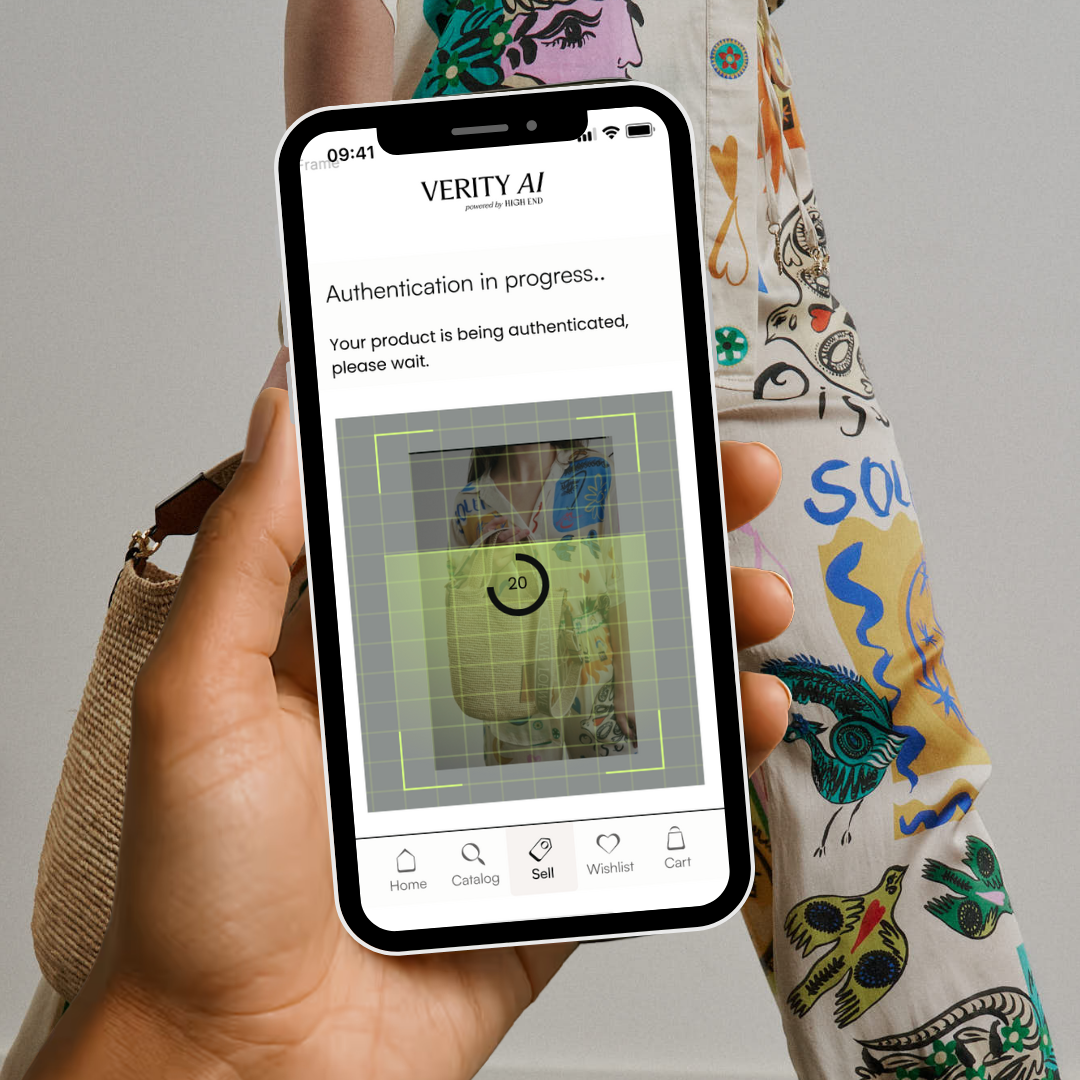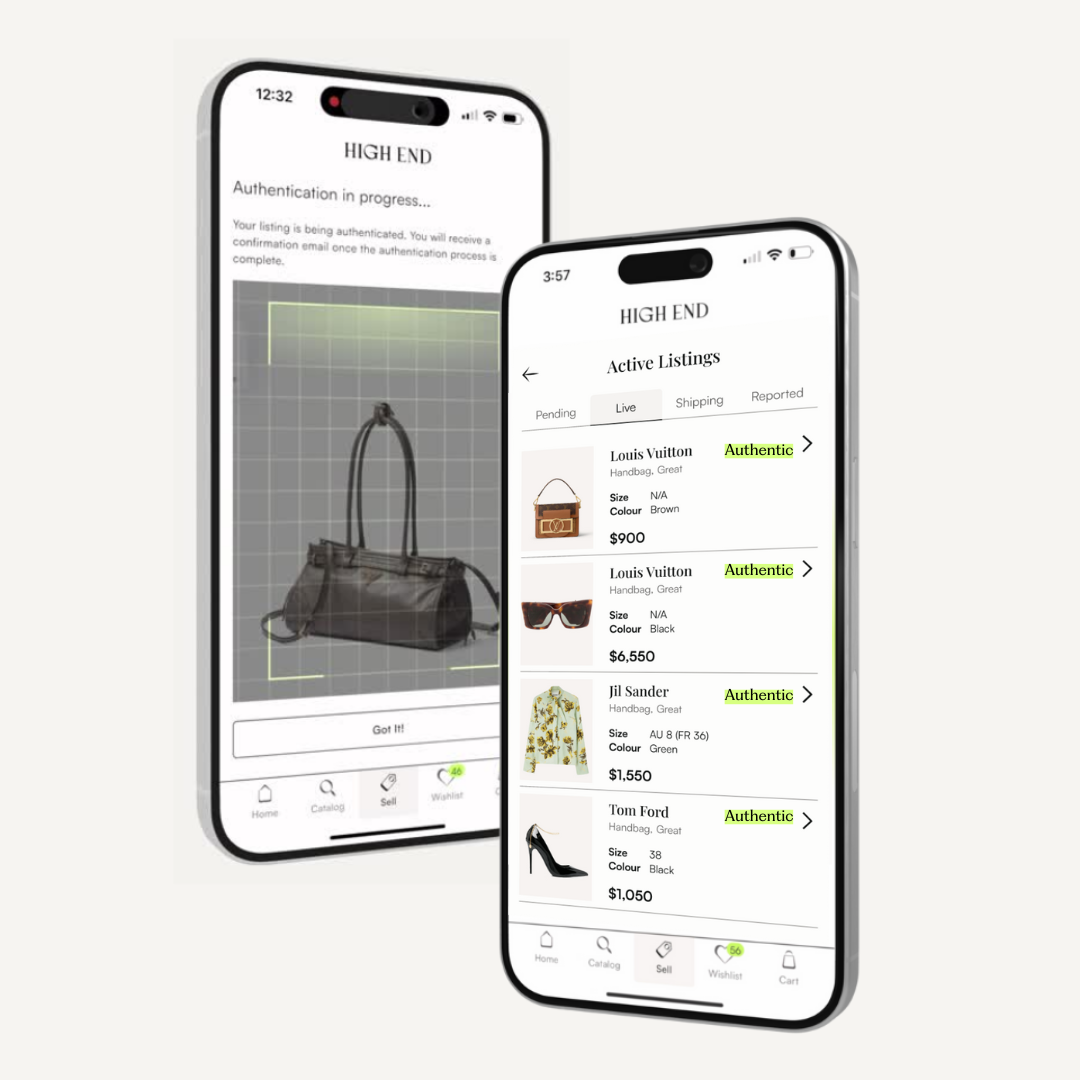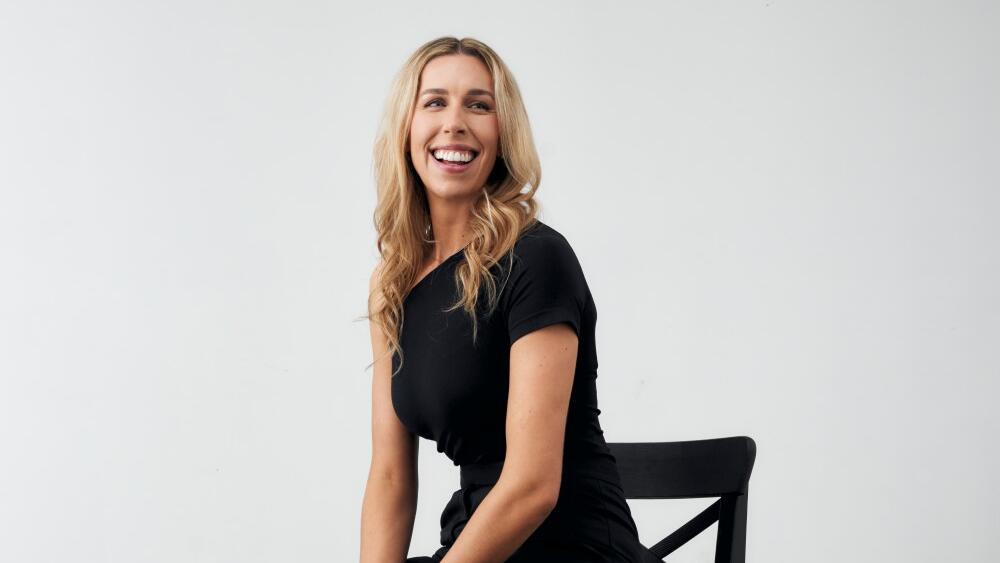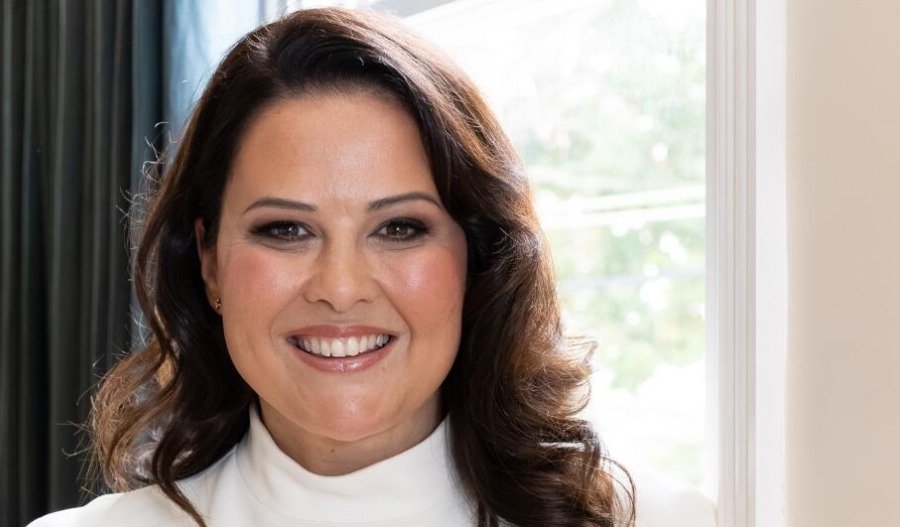The Founders showcases the inspiring journeys of visionary entrepreneurs who turned ideas into thriving businesses. Dive into captivating stories and insightful interviews with founders and CEOs, as they share their challenges, triumphs, and industry insights in this ongoing series.
Within the luxury clothing re-sale market, it can be difficult to tell what is authentic and what isn’t, contributing to the US$1.8 trillion counterfeit issue.
Lauren Kennedy saw this issue first-hand while shopping online and decided to use her skills in data science and AI to create Verity AI, which launched last week.
This led her to create a Facebook group with Brook Marks around 10 years ago, where they explored how people interacted with the luxury re-sale market.
“We were able to collect a lot of data and understand different behaviours through that group to buy and sell over the last 10 years,” Kennedy tells Azzet.
From there, Marks and Kennedy entered the US$350 billion re-sale market through High End, a luxury clothing marketplace that allowed them to explore the ins and outs of the industry.
Verity AI was launched last week and detects authenticity with 98% accuracy.
Bridging a gap
Fashion scams are on the rise with little solution.
Counterfeits are becoming a major threat to economies. According to OCED's latest data, counterfeit goods accounted for an estimated US$467 billion in global trade in 2021. This outpaced the surge in luxury sales.
A 2023 customer report from NAB suggests goods and services scams increased by 66% in the first half of the year, with many of these including fashion scams.
Despite all this, Kennedy says there is no easy way to figure out whether something is real or fake, which became the catalyst for her to branch out from data science to AI.
“I started in AI to solve that personal problem, because I actually looked in the market to see if something existed to solve for authentication at scale, and there was nothing out there that I could use as a customer or as a business,” she says.
One of the major issues with authentication in luxury re-sale is the amount some businesses pay to authenticate their products.
“The RealReal, a component-based second-hand platform in the U.S., spends half a billion dollars a year on authentication,” she says.
“If you're on eBay and you've got 100,000 listings each month, you may not want to spend $500 million a year on that; you only want to allocate $100 million or less than that.”

Kennedy said Verity solved this issue by offering a US$49-a-month plan built into Shopify and an enterprise-based plan.
“If you're only doing 100 authentications a month, we don't want to charge you 1000s of dollars, but if you are processing 1000s of authentications a month, we will charge the appropriate volume,” Kennedy says.
Another issue Kennedy sought to mitigate was the time it took for products to be authenticated.
She says many current authentication websites can take around 24 hours to tell you whether a product is the real deal due to many being manual services with the products being judged by humans.
“When you're running a business, or even if you're a customer, and you see this Prada handbag there or an Alameda dress, you want to know straight away if it's real or not, otherwise, you're not going to purchase a product,” she says.
“You can't wait 24 hours, and the current return rate at Verity is 20 seconds.”
Kennedy said Verity’s mission is to digitally authenticate products through user-generated photos that could even be taken on an iPhone.
“Everything that we've trained our model on is user-generated content, so sometimes the brand labels faded a little bit, or maybe I take it in, poor-ish lighting, things like that,” she says.
“We're sort of accounting any sort of human behaviour in uploading these images, and you can take it on your iPhone.”
How was Verity trained?
While Verity can authenticate many items, where did it gather the data to do so?
This is where the Kennedy and Marks second-hand marketplace High End comes in.
Through her background in data science, Kennedy used her own resale website as a research and development playground to develop the AI.
“[High End] was where we really was able, able to acquire data at scale, label it, start testing it, and also developing the model to build into the marketplace to test, to see how we can increase accuracy and how it works,” she says.
“We'll acquire the data, but also test the model in our marketplace.”

While High End was primarily designed to be a testing ground for Verity, it has also become successful in its own right, with many of the users coming from Kennedy and Marks’ original Facebook group.
“Just within Australia, we've got a really great community here, really high repeat buy rate,” Kennedy says.
“It's a 40% repeat buy rate, and we've got a really good brand name.”
The High End app has also garnered 40,000-plus downloads.



